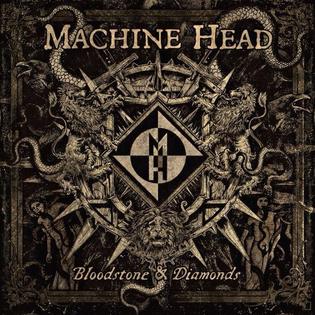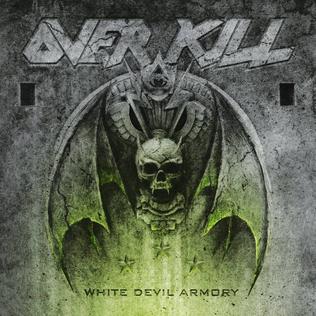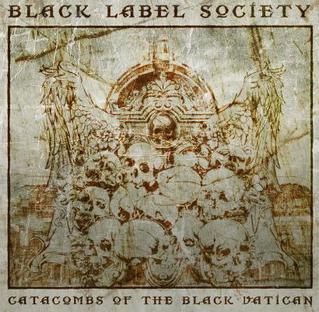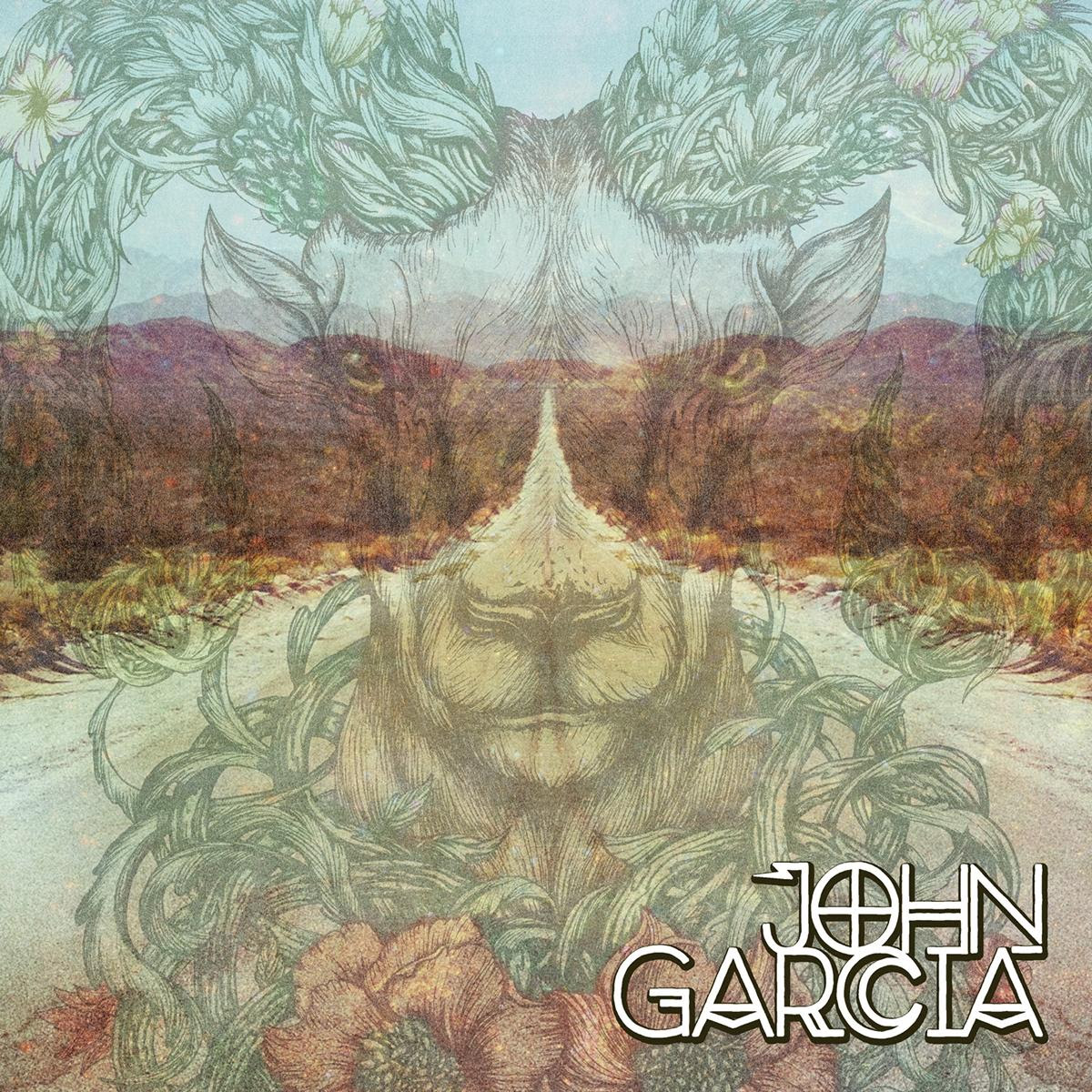Anyways, a few near misses before we get into the list proper...
- Striker - City of Gold: Turns out that NWOBHM is alive and well and living in Alberta, Canada. A stonking slab of old-school metal.
- Chevelle - La Gargola: While it can come off a little like Tool-lite at times, it's impossible not to like an album that packs an incredible triple punch like that of Take Out the Gunman, Jawbreaker, and Hunter Eats Hunter.
- Kyng - Burn the Serum: This album is worth getting solely for the utterly brilliant single Electric Halo. And there's plenty of other good hard rock on offer here too.
- Soundgarden - Echo of Miles... Scattered Tracks Across the Path: Whilst I didn't consider it for inclusion on the list (it's not really a studio album and some of the material has been previously released), it's still a definitive, staggeringly good collection of Soundgarden's b-sides, covers and other non-album material. An absolute must-have for fans of the Seattle quartet.
Right, on to the list proper...
14. Fu Manchu - Gigantoid
So, Fu Manchu had sorta become the AC/DC of stoner rock. A new album would bring a new collection of fuzzed out riffs and songs about aliens, cars and skateboarding. And while the source material of Gigantoid is still roughly along those lines, musically the band take a slightly more experimental approach this time around with the occasional punk blast or space jam.
13. Conquering Dystopia - Conquering Dystopia
Ex-Nevermore guitarist Jeff Loomis and some new friends deliver an intriguing instrumental metal record here. You'll have to listen to it properly, but when you do, it's a damn good listen.
12. John Garcia - John Garcia
The mythical Garcia album finally saw the light of day (albeit at the cost of another Vista Chino album) and it actually turned out pretty well. Desert rock through and through, and some good songwriting from the eponymous Garcia, whose talents in this regard weren't often showcased in his Kyuss days thanks to the presence of Messrs. Homme and Bjork. My Mind and His Bullet's Energy in particular are highlights.
11. Hellyeah - Blood for Blood
After chucking out half the band and starting over, Chad Gray and Vinnie Paul seemed to find a new degree of maturity on this record. There are the usual Hellyeah ass-kickers, but tracks like Moth, Hush and Black December showcase a more mellow side and balance out the heavy stuff very well indeed.
10. Sanctuary - The Year the Sun Died
Following the Nevermore split, vocalist Warrel Dane and bassist Jim Sheppard re-started Sanctuary, the band they'd both been in together pre-Nevermore. And although The Year the Sun Died does sound kinda Nevermore-ish at times (in that slightly genre-defying way) it's still a highly worthwhile piece of modern metal.
(spare a thought for Van Williams - at this point he's the only Nevermore member not to appear on this list!)
9. Marty Friedman - Inferno
The ex-Megadeth guitarist emerges from the wilderness (well, actually appearing on various Japanese pop shows) with a superb, unpredictable, mostly-instrumental (but not always) metal record. There's even duelling guitar, saxophone and keyboard solos (and yes, they actually do work well). Probably the unexpected highlight out of leftfield of the year.
8. California Breed - California Breed
Gotta hand it to Glenn Hughes, the veteran singer/bassist just seems to get better with age. California Breed is hard rock with a very strong classic rock influence (hardly surprising when you have Hughes and Jason Bonham involved, although he's subsequently been replaced by Joey Castillo). Newcomer Andrew Watt, who is something like one-third of Hughes' age, shines on guitar as well.
7. Down - Down IV Part 2
Yes, it's only an EP. But it is that good. Hell, We Knew Him Well and Hogshead/Dogshead alone justify the inclusion of this swamp-rock beast from the New Orleans quintet.
6. KXM - KXM
So, they're a supergroup. Except you probably have never heard of any of the members. And they haven't self-combusted in a mushroom cloud of ego yet either. So, not really like most supergroups then. Just go a listen to Rescue Me and Faith Is A Room - top-shelf hard rock produced by three guys who happen to know a thing or two (or more) from experience.
5. Crobot - Something Supernatural
When I reviewed this album, I described this album as the musical equivalent of grabbing an electric fence, only fun. I absolutely stand by that. Bombastic, electric, and with a helluva lot of musicianship for a debut record. These guys could go far...
4. Sevendust - Time Travellers and Bonfires
You know you have a devoted fan base when you can crowd fund an album in three measly days. This acoustic record is the band's first foray into this territory into the studio, inspired by their acoustic live album Southside Double-Wide which is a huge fan favourite. And once again Sevendust demonstrate here exactly why they have such a devoted fan-base - because they consistently deliver. The first half features a bunch of new acoustic tracks - ranging from the sombre to the upbeat, while the second half reworks a bunch of older Sevendust material. Another fine effort.
3. Orange Goblin - Back From the Abyss
Positively irrepressible, this one. The British quartet who have now been around for close to two decades come storming back with a sweaty, beer-drinking, hell-raising hard rock album. Channeling classic influences from the likes of Motorhead and Black Sabbath, whilst maintaining their own distinctive sound, this one was probably the biggest surprise of the year.
2. Machine Head - Bloodstone and Diamonds
Following up The Blackening and Unto the Locust - two modern metal classics - was always going to be a tough ask, especially when ongoing tensions with now-departed bassist Adam Duce threatened to end Machine Head's career. Somehow, Robb Flynn and co. managed to survive all that and produce a visceral, hard-hitting, epic thrash album that absolutely maintains the very high standards that they've set over the past decade.
1. Overkill - White Devil Armory
Thirty four years. That's how long this band has been around. Hell, if they can keep producing albums like White Devil Armory there's no reason to believe they couldn't be around for thirty four more. This is a quality thrash metal album from start to finish - and between this album and its two predecessors (The Electric Age and the brilliant Ironbound), Overkill are embarrassing a bunch of their 80's contemporaries. From the adrenaline rush of Armorist to the epic closing of In the Name, and including all the territory in between, White Devil Armory is a thrash masterclass.
















